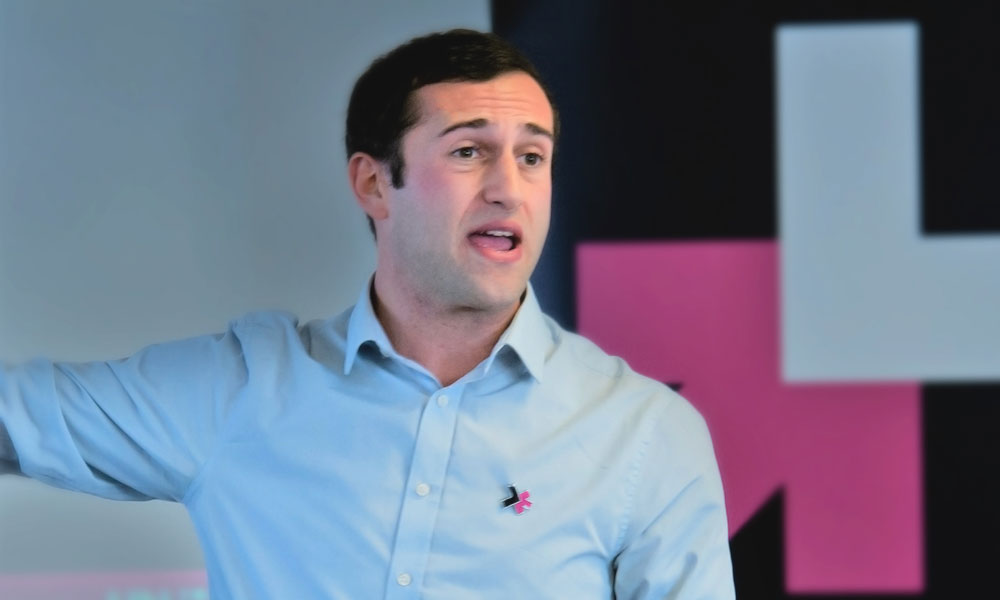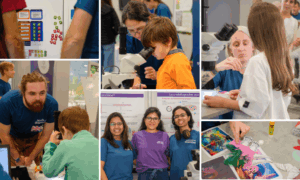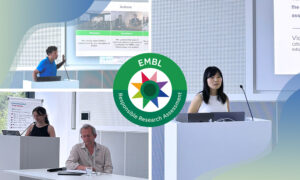
From crisis to recovery: achieving an equal future in a post-COVID-19 world
EMBL invites Simon Gallow, an advocate at UN Women UK, to give a talk marking International Women’s Day

To mark International Women’s Day, EMBL has invited Simon Gallow, an advocate at UN Women UK, to discuss how we can achieve an equal future in a post-COVID-19 world. With women often on the front line of the COVID-19 crisis, the pandemic has highlighted the centrality of their contributions as well as the disproportionate burden that women carry. Register now and join us on 8 March at 17:00 CET for a discussion with Simon on building a more gender-equal future together, including how men can act as key allies in this challenge.
The past 12 months have been an extremely difficult time for everyone. For governments, for businesses, organisations, and communities. This has not just been a health crisis, but a crisis of equality. Simon explains that, prior to the COVID-19 pandemic, we were 100 years away from achieving gender parity, but the pandemic could set us back 25 years in terms of progress – not by causing more inequalities, but by exacerbating those that already exist.
While we face many challenges, Simon explains, we now have a unique window of opportunity to make change happen for the following reasons:
- We’re beginning to think more creatively about what the world could look like and how we could achieve gender equality. From vaccine programmes to social protection schemes, we’re working in new, bold, creative ways – and now we must apply this creativity to the challenge of equality.
- We’re finally talking about these issues, from domestic violence to the disproportionate burden that care provision places on women.
- Men are getting engaged in the conversation as allies and advocates for gender equality. “Men are beginning to not only understand the challenges, but understand that equality for women is progress for everyone – including men,” says Simon.
From challenge comes change, and we can all choose to challenge gender bias and inequality, which is exactly what this year’s International Women’s Day theme #ChooseToChallenge is all about. For this year’s International Women’s Day at EMBL, we choose to focus on allyship. “Equality is not a zero-sum game. When we have equal representation everywhere, all aspects of our society thrive,” says Simon. He explains that it feels like a privilege as a man to have a platform to speak out on gender equality issues. When first starting to speak out on gender equality, he wondered whether he was the right person to take on these issues. “By using my position of privilege where others don’t have a voice, I am ultimately speaking to change minds and behaviours in the fight for equality,” says Simon.
When speaking out and taking on this challenge, there are a few points we should take into account, Simon explains.
- We must believe in the benefits of equality and inclusion and get allies to help shift the narrative. “Until we have equality for everyone, we risk perpetuating injustice for everyone,” says Simon.
- We need to get people to take responsibility for their education on the topic; we can’t expect different groups to fix their challenges alone. This includes things like reading books and following organisations online such as UN Women UK.
- We must be open and frank. “Our world has become more divided, and has often split people into different echo chambers. The world must come together to understand other people’s experiences. We must celebrate each other’s differences: that is what makes us human,” says Simon.
At a young age, when Simon saw kids in the playground being bullied, it used to make him extremely angry, especially if it was because of their background, their sexuality, the colour of their skin – or indeed their gender. “As I grew older, I realised it doesn’t matter where in the world you are or what sector you work in – the common denominator for discrimination everywhere is ‘women’. I understood that this simply needs to change and that these challenges cannot be solved without my gender.” Today, Simon’s work at UN Women UK is dedicated to ensuring that every woman and girl has access to safety, choice, and a voice. From grassroots programmes with the most vulnerable women and girls, to changing attitudes and helping governments design gender equality policy, UN Women aims to remove the social and cultural barriers that prevent women and girls from achieving their full potential.
Simon’s talk will take place on Monday 8 March at 17:00 CET. Register now and join the discussion! The talk is free and open to everyone, both inside and outside EMBL, so feel free to spread the word and share with anyone who might be interested. The talk has been organised by EMBL’s Equality, Diversity and Inclusion Committee; Science and Society Programme; and Staff Association. This talk will be recorded and added to the EMBL YouTube account afterwards.


